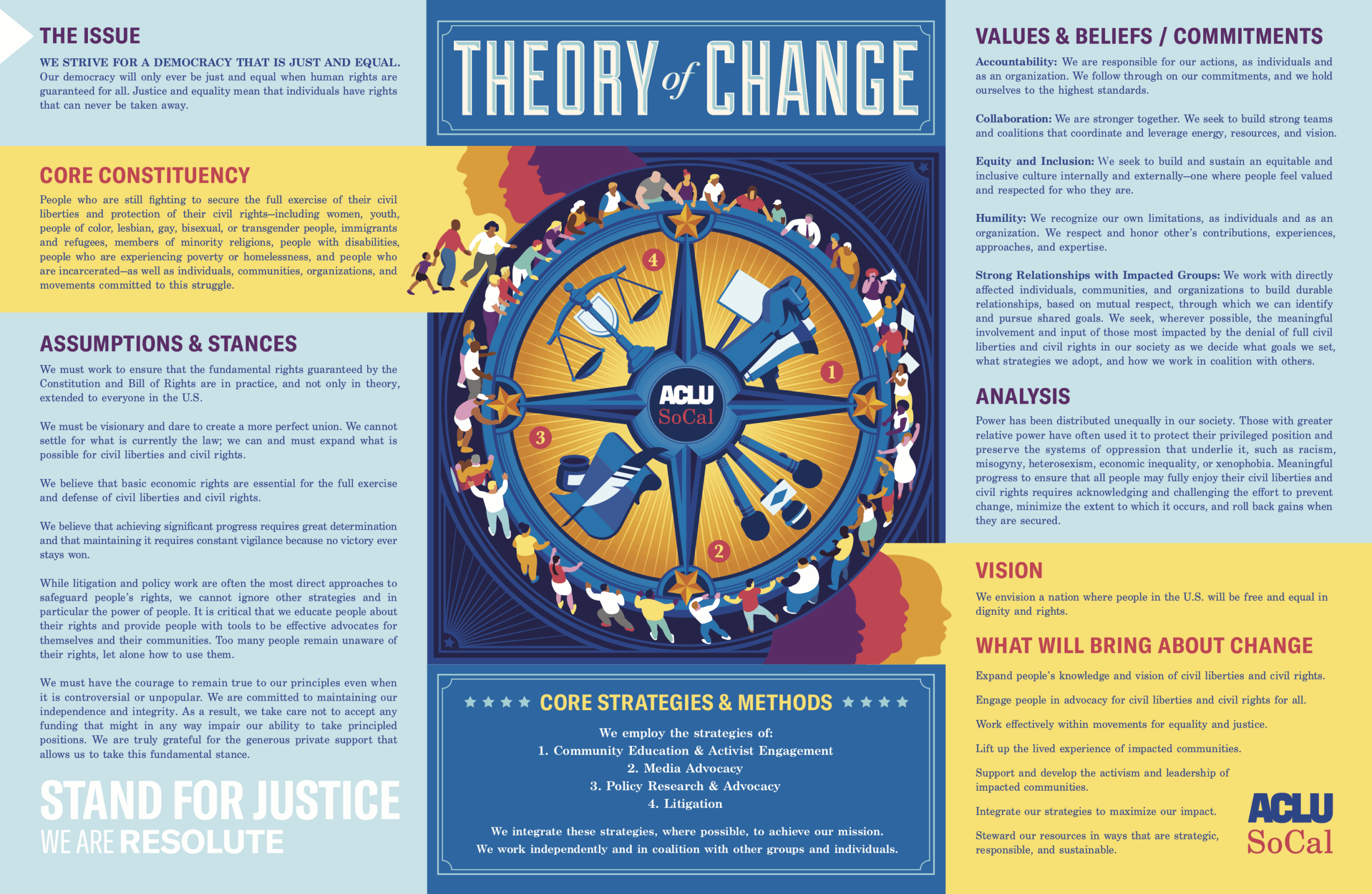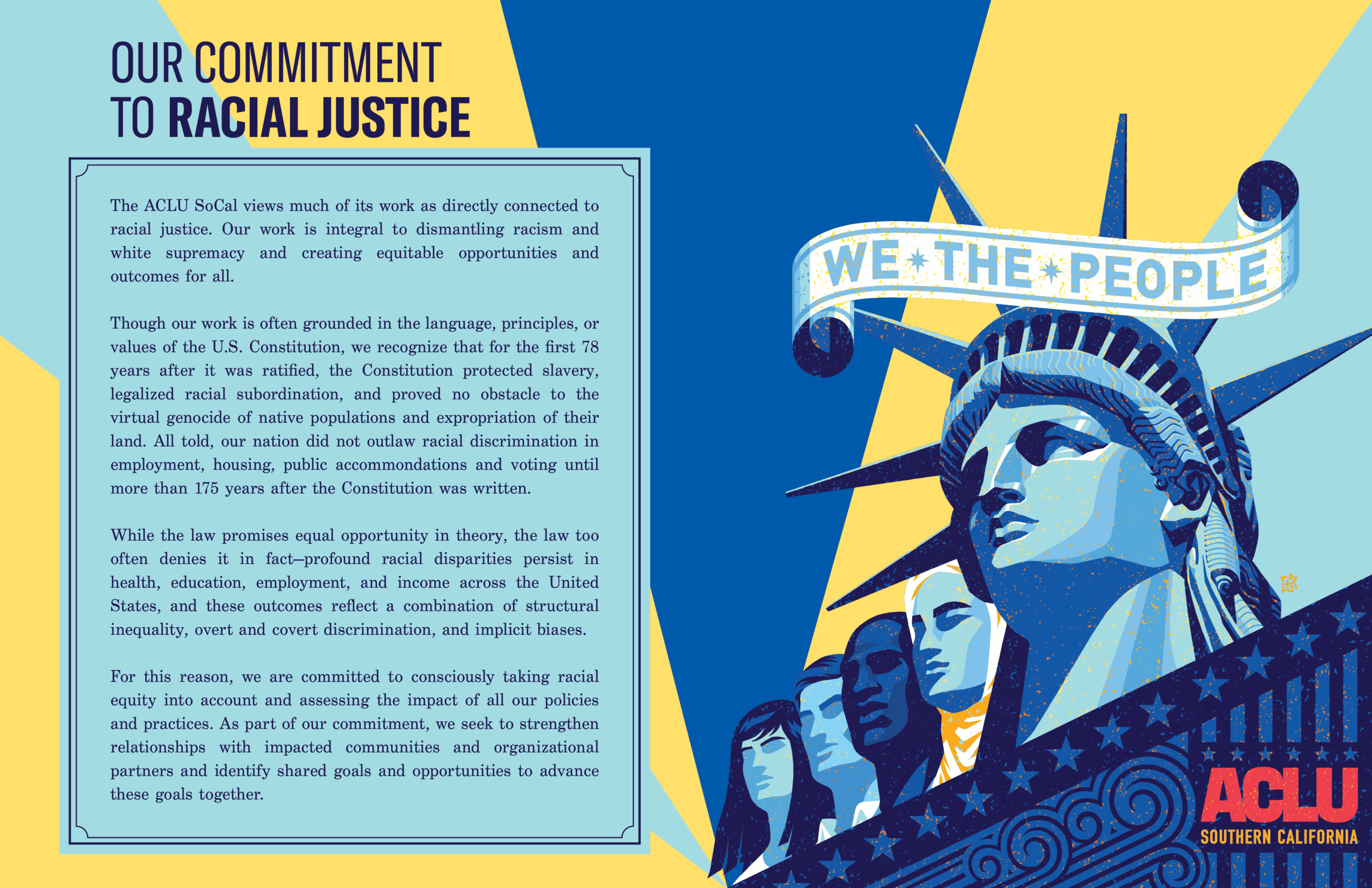About ACLU SoCal
What We Do
The American Civil Liberties Union (ACLU) defends the fundamental rights outlined in the United States Constitution and the Bill of Rights. These include the right to freedom of speech and assembly, the right to religious freedom, due process of law, equality before the law and the right to privacy. The ACLU also relies on state constitutional provisions and federal and state laws that further these and similar rights.
Today, the ACLU has affiliates in 50 states, Washington, D.C. and Puerto Rico. California is unique in that it has three affiliates: ACLU of Northern California, ACLU of Southern California and the ACLU of San Diego & Imperial Counties. Often, the three affiliates work in collaboration on statewide initiatives under the "ACLU of California."
Generally, the ACLU of Southern California works on behalf of people in the Southern California region, namely in Los Angeles, Kern, Orange, Riverside, San Bernardino, San Luis Obispo, Santa Barbara and Ventura Counties.
The work of the ACLU can be categorized as follows:
First Amendment
The rights of free speech, free association and assembly, freedoms of the press and religion, including the strict separation of church and state.
Equal Protection
The right not to be discriminated against on the basis of certain classifications, such as race, sex, religion, national origin, sexual orientation, age, disability, etc.
Due Process
The right to be treated fairly, including fair procedures when facing accusations of criminal conduct or other serious accusations that can lead to results like loss of employment, exclusion from school, denial of housing, cut-off of certain benefits or various punitive measures taken by the government.
Privacy
The right to a zone of personal privacy and autonomy.
Groups and Individuals That Continue to Struggle for Civil Liberties
The extension of all the rights described above to those who are still fighting for the full protections of the Bill of Rights, especially those historically forced to the margins of our society including women, immigrants, people of color, members of minority religions, disabled people, LGBTQ and nonbinary people, veterans, poor and unhoused people, people detained and incarcerated, and children in the custody of the state.
We accomplish the above by public education, lobbying and litigation. We educate and help empower individuals about their rights. We advocate for and against federal, state and local measures. And, when necessary, we file federal and state court lawsuits. We do all of this to defend and preserve the individual rights and liberties that the Constitution and laws of the United States guarantee everyone in this country.


